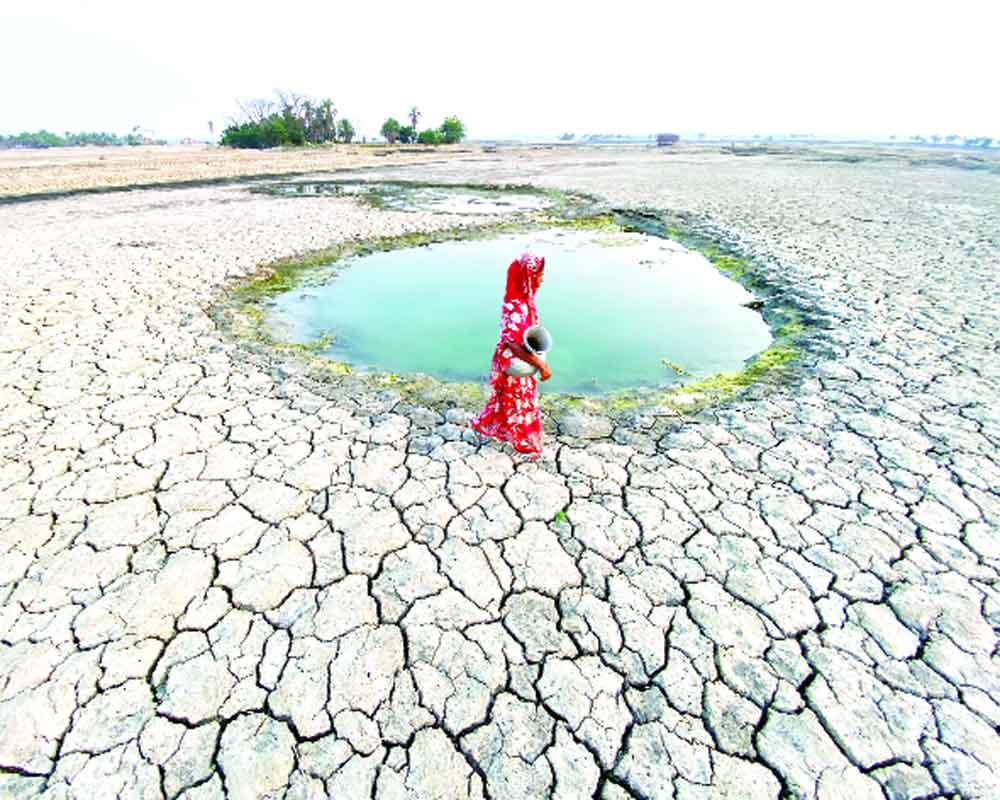India stands out as a beacon of hope, demonstrating unwavering commitment through innovative climate initiatives and sustainable practices
This year’s record spell of an intense heatwave in Delhi, during which temperatures touched 50°C, highlighted concerns over the adverse effects of climate change globally. India remains a beacon of hope through its actions as part of the global efforts to stem climate change. Through myriad initiatives, the country has demonstrated its unwavering commitment to environmental sustainability.
India’s journey toward climate action began in 2009 when the country voluntarily pledged to reduce the emissions intensity of its GDP by 20-25% by 2020 compared to 2005 levels. Impressively, India achieved a 24% reduction within the stipulated timeframe. In alignment with the Paris Agreement, India submitted its Nationally Determined Contributions (NDCs) to the UNFCCC in 2015, setting forth eight ambitious targets for 2021-2030, further reinforcing its commitment to combating climate change.
Tree plantation and forest conservation are at the heart of India’s environmental efforts. Through programs like the National Mission for Green India and the Compensatory Afforestation Fund Management and Planning Authority (CAMPA), India encourages the use of barren land for tree plantations.
The country ranks third globally in net forest area gain, with 21.71% of its geographical area covered by forests. Initiatives like the Green Credit Program further incentivize tree plantation and forest restoration. India’s commitment to wetland conservation is equally impressive, with 80 designated Ramsar sites. The Mangrove Initiative for Shoreline Habitats and Tangible Incomes (MISHTI) aims to promote and conserve mangroves, which are vital for carbon storage and marine biodiversity.
The country has implemented the Plastic Waste Management Amendment Rules, 2021, banning the use of single-use plastics. Renewable energy is another area in which India excels. The National Green Hydrogen Mission, launched in January 2023, aims to position India as a leader in green hydrogen technology. The country ranks fourth globally in renewable energy capacity.
India's environmental initiatives extend beyond its borders. The country plays a pivotal role in global platforms such as the Global Alliance for Circular Economy and Resource Efficiency. India has made notable strides in addressing climate change, earning a commendable 7th place in this year’s Climate Change Performance Index (CCPI), up one spot from last year, making it one of the highest performers globally.
India’s high ranking in the GHG Emissions and Energy Use categories underscores the country’s efforts to manage its environmental impact despite its large population. Notably, India’s per capita emissions remain relatively low, aligning with global benchmarks aimed at limiting temperature rise to well below 2°C above the pre-industrial average.
However, the path forward is complex, and critical areas still require focused attention and accelerated action. India continues to rely heavily on coal, oil, and gas to meet its growing energy demands. This dependence is a major contributor to GHG emissions and severe air pollution, especially in urban areas. While there is a slight positive trend in the adoption of renewable energy, the pace of this transition is too slow to meet urgent climate goals.
Despite high marks in emissions and energy use, India receives a medium rating in Climate Policy and Renewable Energy. The country has clear long-term policies focusing on renewable energy, including the domestic manufacturing of renewable energy components. Yet, the implementation of these policies needs to be more effective.
The COP26 announcement by Prime Minister Modi, setting a net-zero emissions target for 2070, has been criticized by experts for lacking ambition. The call for a faster phase-out of coal, reduced reliance on gas, and a significant expansion of renewable energy is strong.
India's heavy reliance on coal presents a significant challenge. Despite high taxes on petrol and diesel, consumption has not decreased. Some experts view these taxes as effective, while others highlight the government’s dependence on the revenue they generate.
The rephrasing from ‘phase-out’ to ‘phase-down’ for fossil fuels, championed by India and China at the last COP, was a setback for global climate commitments. Large-scale renewable energy projects in India have also faced criticism for negatively affecting local communities through land grabs and unequal resource distribution. Policies have been largely mitigative rather than transformative, often overlooking adaptation and disaster risk management. There is a growing call for policies that incorporate ecosystem-based solutions and prioritize equity, ensuring that climate actions benefit all segments of society. India needs a more bottom-up approach to policy implementation, incorporating the needs and demands of tribal and rural communities.
(The writer is a NCAER faculty; views are personal)


























